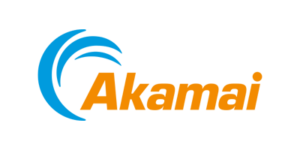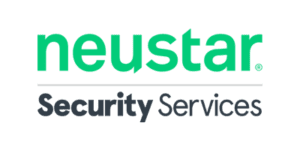Distributed denial-of-service (DDoS) attacks are becoming a major issue for many businesses, from small and midsize to large enterprises. The size of the attack has also been on the rise, with attacks exceeding 2Tbps in size. Cloudflare reported a 15% quarter-on-quarter (QoQ) and a 67% year-on-year (YoY) increase in ransom DDoS attacks in Q3 2022.
There was also a significant surge in Layer 3 and 4 DDoS attacks, with an increase of 97% YoY and a 24% QoQ. The most common targets of these attacks were the gaming industry, telecommunications, and information technology and services, including the software industry.
These industries are often targeted because they store data that can be sold on the black market, creating a new revenue stream for cyber criminals. With such high costs associated with DDoS attack protection, it is essential to find ways to reduce business exposure and minimize damage from this type of cyberattack.
However, not all DDoS protection service providers offer the same level of security or features. Businesses should carefully evaluate their needs before choosing one over another, weighing factors such as the cost of ownership of security controls against potential impacts if an attack is successful.
- What is a DDoS Protection Service
- Top DDoS Protection Providers
- Cloudflare
- Akamai
- Project Shield
- AWS Shield
- Imperva DDoS Protection
- Radware
- Link11 DDoS Protection Service
- AppTrana
- Neustar
- BlockDOS
- How to Choose a DDoS Protection Provider
What is a DDoS Protection Service?
DDoS protection services are a form of cybersecurity that protects against DDoS attacks. A DDoS attack occurs when a third-party attempts to overwhelm the computer system(s) with fake requests, rendering the service unavailable to genuine users. There are various ways in which this can be done, such as by directing traffic from numerous sources towards the same target to overload it and cause it to become non-functional.
In some cases, there might be up to hundreds or even thousands of different sources, each transmitting data at high speeds and all competing for a response from the targeted machine. In other cases, attacks can be more targeted and use just one or two sources, although still at very high volumes.
Top DDoS Protection Providers
DDoS protection services are an essential part of any business. They protect the network from being the victim of an attack that could disrupt enterprise service, steal customer data, or even destroy systems. The following is a list of the leading companies that offer DDoS protection service.
Cloudflare

Cloudflare is a security and performance company that offers one of the market’s most popular DDoS protection tools. On average, the company serves 39 million HTTP requests per second and powers millions of websites, from small startups to large organizations, including IBM, Shopify, Zendesk, Lendingtree, and Doordash. Cloudflare acts as an intermediary between website visitors and a website’s server.
It can take care of all layers, including network-level attacks such as volumetric attacks or application-layer attacks such as a database, SQL injection, or cross-site scripting.
Key Differentiators
- Cloudflare’s 172Tbps network blocks an average of 126 billion daily threats.
- Its reverse proxy service, Cloudflare Spectrum, provides DDoS protection for any application, including File Transfer Protocol (FTP), Secure Shell (SSH), voice over Internet Protocol (VoIP), gaming, or any application running over a Transmission Control Protocol and User Datagram Protocol (TCP/UDP) protocol.
- Cloudflare Spectrum includes Layer 4 load balancing and traffic acceleration.
- Its magic transit offers Border Gateway Protocol (BGP)-based DDoS protection for network infrastructure, which can be deployed in either always-on or on-demand modes.
- Cloudflare’s always-learning global network provides unmetered, always-on DDoS protection for users’ web assets (HTTP/HTTPS).
- Cloudflare’s centralized and decentralized mitigation systems can stop most DDoS attacks in three seconds.
Akamai

Akamai is a leading provider of security, cloud, and content delivery solutions. For over two decades, Akamai has delivered high-performance digital experiences on the internet. One of the many ways Akamai secures users’ experience is by protecting them from DDoS attacks. The company offers various DDoS protection solutions to help organizations defend against these attacks.
Akamai’s Prolexic product can detect malicious traffic patterns for enterprises looking to protect themselves. Scrubbing centers filter out attack traffic before it reaches its enterprise applications, data centers, and internet-facing infrastructure. Additionally, Akamai’s Prolexic boasts of 100% platform availability, time to mitigate, time-to-alert notification, time to respond, and individual time-to-mitigate service-level agreements (SLAs) based on specific attack vectors.
Key Differentiators
- Prolexic DDoS protection capacity increased from 8.2Tbps to 10Tbps, boosting Akamai edge capacity to 200+ Tbps.
- Its zero-second SLA mitigates 80% of attacks.
- Prolexic can prevent attacks without collateral harm by constructing bypass networks that passively scan all customer traffic.
- 225+ front-line security operations control center (SOCC) responders power the solution.
Project Shield

Google Cloud and Jigsaw developed Project Shield as a freemium service to secure qualified platforms such as news and independent journalists, human rights groups, election information and monitoring, political organizations, and eligible government agencies.
Those interested in using the platform must fill out an application and provide relevant information such as:
- Organization name and location.
- Site owner’s name.
- Email.
- Website URL.
- Type of website content.
- Secure Sockets Layer (SSL).
- Current or previous DDoS attack information.
Key Differentiators
- Using Google infrastructure, this service protects users’ sites from Layer 3, 4 and 7 attacks.
- It caches material to improve DDoS defenses, site performance, and bandwidth. Users may invalidate caches as needed.
- Using the data Project Shield collects in the background, users can quickly assess data such as site traffic, error rates, and bandwidth savings.
- For better site security, it provides options such as JavaScript cookies and IP deny lists.
AWS Shield

AWS Shield is a managed DDoS mitigation and monitoring service that can be used to protect applications running on AWS infrastructure. The tool offers dynamic detection and automatic inline mitigations. It provides active detection and automatic inline mitigations to reduce application downtime and latency.
The tool is available in two tiers: Standard and Advanced. AWS Shield Standard protects companies’ websites or apps against network and transport layer DDoS attacks. It also protects against all known infrastructure (Layer 3 and 4) attacks when used with Amazon CloudFront and Amazon Route 53. AWS Shield Advanced provides enhanced protection against attacks on Amazon Elastic Compute Cloud (EC2) applications, Elastic Load Balancing (ELB), Amazon CloudFront, AWS Global Accelerator, and Amazon Route 53 services.
AWS Shield Standard is free, and AWS Shield Advanced costs $3,000 per month per organization. Although, Amazon requires a 1-year subscription commitment from AWS Shield Advanced users.
Key Differentiators
- AWS Shield Advanced can safeguard web applications automatically by mitigating application layer (Layer 7) DDoS events without requiring manual intervention from the user or the AWS Shield response team (SRT).
- AWS Shield Advanced leverages application health to enhance threat detection and mitigation.
- Users can apply health-based detection to all resource types supported by Shield Advanced, including Elastic IP, ELB, CloudFront, Global Accelerator, and Route 53.
- AWS Shield allows users to bundle resources into protection groups for self-service detection and mitigation by assessing multiple resources as a single entity.
- It provides comprehensive visibility into DDoS attacks with near-instant notification via Amazon CloudWatch and detailed diagnostics on the AWS WAF and AWS Shield console or application programming interfaces (APIs).
Imperva DDoS Protection

Imperva is a leading provider of cybersecurity solutions, including web application firewalls (WAFs) and DDoS protection services. The company’s attack analytics solution provides on-demand visibility into cyber threats from Layer 3 and 4 to Layer 7.
It monitors network traffic patterns in real time to identify suspicious activity and protect against cyberattacks with 99.999% SLA availability for content delivery network (CDN), cloud WAF, and Domain Name System (DNS) protection. Imperva uses a global scrubbing network of 49 Points of Presence (PoPs) to block bad traffic while allowing legitimate traffic through.
Key Differentiators
- Imperva’s 9Tbps network can block 65 billion attack packets per second.
- It supports integration with security information and event management (SIEM).
- Imperva provides real-time attack notifications via email, SMS, and mobile apps.
- It supports several platforms, including public clouds like AWS, Google Cloud, and Microsoft Azure; data centers like Equinix and level 3 communications; and SIEMs like Splunk, ArcSight, IBM Radar, and Elastic.
Radware

Radware offers a suite of business-grade DDoS attack prevention and mitigation solutions. Their products are designed to protect against the most advanced attacks while providing maximum uptime and throughput without impacting application performance.
Radware has a global network of 16 scrubbing centers and 10Tbps mitigation capacity. The company also offers anti-DDoS training and certification programs to help educate businesses about how to combat these threats.
Key Differentiators
- Radware offers DDoS mitigation in every environment, including on-premises and private, public, and hybrid clouds.
- Radware provides real-time protection from scanners, floods, DDoS, DNS attacks, botnets, IoT botnets and web attacks.
- Access privileges management is available.
- Radware offers advanced behavioral-based detection for network-layer and application-layer attacks, automated real-time signature generation to guard against zero-day attacks, unique SSL/TLS DDoS protection, and customizable cloud-based and hybrid deployment options.
Link11 DDoS Protection Service

Link11 is a leading cybersecurity company focusing on infrastructure and web DDoS protection. This provider uses self-learning AI to analyze attack sequences and recognize the fingerprints of the attacker’s strategy, which can then block future attacks from the same source.
Link11’s infrastructure DDoS protection systems are designed to protect against any size DDoS attack. The system uses an autonomous global distributed scrubbing center architecture that fends off DDoS attacks on applications and services in a network. Its web DDoS protection is a core component of the Link11 web security suite and provides protection using the always-on principle.
Key Differentiators
- Link11 protects against volumetric attacks such as botnet-based TCP floods, botnet-based UDP floods, ICMP floods, UDP amplification reflection floods, and TCP reflection floods.
- Link11 notifies users about urgent threats via text message.
- This solution runs entirely on the cloud.
- Within their multi-terabit network, they provide SLA protection bandwidths of 100, 200, 500, and 1,000Gbps.
- Mitigation takes zero time for known vectors and less than 10 seconds for new vectors.
AppTrana

AppTrana provides a fully managed web application firewall, API protection, DDoS protection, and bot management service. The platform is built on scalable AWS infrastructure to block large attacks up to 2.3Tbps and 700K requests per second with the ability to scale in the event of an attack. AppTrana provides unmetered DDoS attack protection and only charges users for legitimate traffic passed to their origin.
Key Differentiators
- AppTrana protects against all types of DDoS attacks, including infrastructure, protocol, and application layer attacks.
- Always-on protection offers fast detection and mitigation, providing instant DoS and DDoS prevention without impacting legitimate traffic.
- AppTrana offers behavioral-based DDoS protection.
- AppTrana provides unmetered DDoS protection against Layer 3, 4 and 7 DDoS attacks.
Neustar

Neustar UltraDDoS Protect offers always-on, on-demand, hybrid, or on-premises solutions. They offer 15+ Tbps of DDoS mitigation bandwidth with guaranteed application performance and data availability.
Neustar uses a hybrid protection methodology to provide the fastest mitigation response possible while maximizing the system’s capacity to deal with more significant attacks. It provides on-premises hardware to mitigate more minor attacks and UltraDDos Protect for cloud when attack volume and complexity increase.
Key Differentiators
- Neustar protects cloud, multicloud, data center, and hybrid assets against DDoS attacks.
- It offers on-premises hardware and cloud-based protection.
- UltraDDoS Protect supports DNS and BGP redirection.
- UltraDDoS Protect packages are available for up to 40Gbps of clean traffic.
BlockDOS

Founded in 2000, BlockDOS is an internet security company that offers 10Tbps+ and 150+ PoPs globally to provide practical solutions against all types of DDoS attacks with both prevention and mitigation techniques. With 24/7 year-round monitoring, BlockDOS boasts of 100% uptime availability and high-end performance. The service also provides multilayered protection to traffic filtering and routing services.
Key Differentiators
- BlockDOS offers redundant tier-1 network providers with multiple failover systems.
- BlockDOS servers are shielded against a wide range of DDoS attacks, including UDP, HTTP, SYN, and ICMP flood.
- It offers ??HTTP/HTTPS, DNS, and email protection.
- BlockDOS partners with other anti-DDoS providers to deliver more comprehensive services.
How to Choose a DDoS Protection Provider
Choosing the right provider is a challenging task. There are many factors to consider, such as customer service, cost, reputation, and features. Some providers will be more suitable than others depending on what you need from your provider.
To make an educated decision when choosing your provider, it is essential to research your options before making a decision. You should also read reviews from people who have used the provider before to get a feel for how satisfied they were with their experience. You can find the best fit for your needs by doing this.
Before making your selection, you can also ask yourself some pre-qualification questions when shopping for the best DDoS protection services:
- What is the cost of the service?
- How much bandwidth do you need?
- Does it offer 24/7 support, and does that support include in-house experts or just customer service representatives?
- If using the cloud, what kind of servers does it provide, and how many are available at each location? If using hardware, what type of hardware does it provide, and how many pieces are needed to protect against an attack?
- How long does it take for support staff to respond and fix the problem if there is downtime?
- Does it have data centers in various locations around the world?
- Does it have unlimited data usage, or will it limit the traffic from one IP address?
- Can it block attacks that use different protocols, such as UDP, ICMP, or SYN floods?
Answering these questions beforehand will help you pick a service with the essential features for your business needs.
The post Best DDoS Protection Services for 2023 appeared first on Enterprise Networking Planet.

